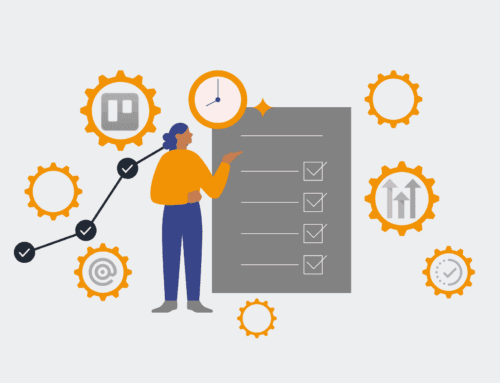Record Management Systems: The Backbone of Retention Policies
In today’s data-rich business landscape, the phrase “information is power” rings truer than ever. Yet, without proper management, that power can quickly become a liability. For businesses navigating complex regulatory environments and striving for operational excellence, a robust Record Management System (RMS) isn’t just a nice-to-have; it’s the fundamental backbone of any defensible data retention policy.
At 4Spot Consulting, we’ve seen firsthand how an absence of strategic record management can lead to bottlenecks, expose organizations to legal risks, and erode trust. We understand that for HR leaders, COOs, and business owners, the goal isn’t just to store data, but to manage its entire lifecycle efficiently, securely, and compliantly.
Beyond Simple Storage: The True Role of an RMS
Many businesses mistakenly equate record management with simply having a place to save files. However, a true Record Management System is a sophisticated framework designed to control the creation, receipt, use, maintenance, and disposition of records. It’s the engine that powers your retention policies, ensuring that information is kept only as long as necessary, and no longer.
Think of it as the ultimate single source of truth for your organizational data. It classifies, indexes, and secures every piece of information, from employee contracts and financial statements to client communications and operational logs. Without an RMS, retention policies are often aspirational, lacking the tools and enforcement mechanisms needed to translate intent into action.
Why Retention Policies Demand a Robust RMS
The link between a sound retention policy and a powerful RMS is symbiotic. A retention policy outlines what records to keep, why, and for how long. The RMS is how you execute that policy consistently and defensibly. Here’s why this synergy is critical:
Compliance and Legal Defensibility
Regulatory bodies globally impose strict rules on data retention. Whether it’s HIPAA for healthcare, GDPR for privacy, or industry-specific financial regulations, non-compliance carries severe penalties. An RMS provides an auditable trail of when records were created, accessed, modified, and destroyed, proving due diligence in the event of a legal challenge or audit. It eliminates the guesswork and manual errors inherent in ad-hoc systems.
Mitigating Risk and Reducing Liability
Holding onto data longer than legally required is a significant risk. Obsolete data can be a goldmine for cybercriminals, amplify the scope of data breaches, and become discoverable in litigation. An RMS automates the secure disposition of records once their retention period expires, systematically reducing your organization’s digital footprint and potential liability. This systematic approach is a core component of any robust CRM & Data Backup strategy, preventing unnecessary accumulation of sensitive information.
Operational Efficiency and Cost Savings
When records are disorganized or scattered across disparate systems, employees waste countless hours searching for information. This isn’t just inefficient; it’s expensive. An RMS centralizes data, making it easily searchable and retrievable, thereby freeing up high-value employees from low-value work. Furthermore, by automating the archival and destruction process, an RMS optimizes storage costs, both physical and digital.
Ensuring a Single Source of Truth
One of 4Spot Consulting’s core tenets is the establishment of a “Single Source of Truth.” In many organizations, critical information lives in silos—HR systems, CRM databases, shared drives, and individual inboxes. This fragmentation leads to inconsistencies, outdated data, and operational errors. An RMS integrates with existing systems to consolidate and harmonize record-keeping, ensuring everyone works from the same, verified information.
Implementing Your RMS: A Strategic Imperative
The implementation of an effective RMS isn’t a purely technical project; it’s a strategic undertaking that requires a deep understanding of your business processes, legal obligations, and operational goals. This is where expertise in automation and AI integration truly shines.
We leverage our OpsMesh™ framework to design and implement record management solutions that are not only compliant but also enhance your business agility. By integrating platforms like Make.com, we automate the classification, routing, and retention triggers for various record types, ensuring that your retention policies are enforced without manual intervention. For HR and recruiting, this means automating the lifecycle of candidate applications, employee files, and compliance documents, saving hundreds of hours and mitigating risk.
An RMS, when properly implemented, transforms your data from a potential burden into a strategic asset. It underpins your ability to comply with regulations, protect sensitive information, reduce operational costs, and make informed decisions based on accurate, accessible data. It’s not just about managing records; it’s about managing your future.
If you would like to read more, we recommend this article: HR & Recruiting’s Guide to Defensible Data: Retention, Legal Holds, and CRM-Backup







